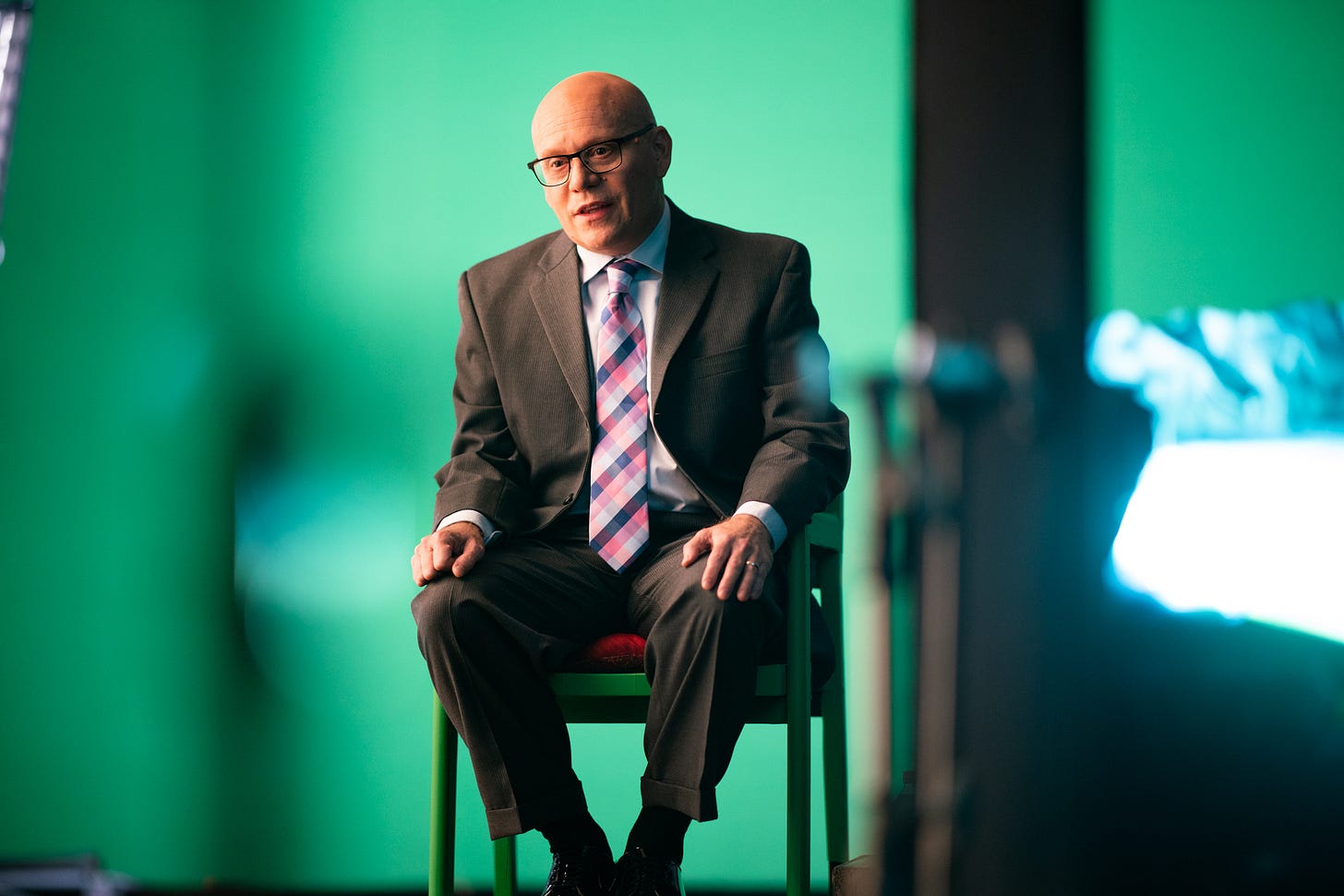‘The Last Republican' and ‘Separated,’ at the Philadelphia Film Festival, contend with the worst parts of the Trump presidency
A pair of political documentaries at PFF are both effective- but will either make any difference?
Donald Trump, since his entry into national politics in 2015, has done a lot of bad things. The New Republic, this week, is running a ranking of the 100 worst.
As Trump seeks the presidency again, and with the election just two weeks away, a pair of documentaries at the Philadelphia Film Festival are contending with the two worst things: The child separation policy, and the failure to accept the rightful result of the 2020 election, leading into the January 6 riot.
There have already been, probably, a dozen documentaries about the latter thing, but until now, there hadn't been one about the former.
I understand why; January 6 is very cinematic, there's virtually unlimited footage available of it, and making a documentary about the leadup to it allows nonfiction filmmakers to do something they all love: Pointing the camera at colorful crazy people. There have been great approaches to this (A Storm Foretold, 64 Days, Stopping the Steal and The Sixth this year, Cullen Hoback’s Q Into the Storm in 2021 and This Place Rules in 2022) and terrible ones (American Insurrection, plus the one from Alexandra Pelosi.)
As for the separations, the first major documentary film is Separated, by the veteran respected documentarian Errol Morris. Adapted from MSNBC journalist Jacob Soboroff’s book of the same name, the film tells a pretty straightforward account of that evil, evil policy, and how it was launched and ultimately abandoned. But like most things about Trump, it threatens to come back, in an even worse form, should be return to the White House.
The outrage, of course, is still fresh, and even though he only appears a few times in archival footage, the reptile-like Trump adviser Stephen Miller zooms to the top of the year’s Top Documentary Villains list.
It’s a worthwhile film, featuring testimony by some of the people involved, including whistleblower Jonathan White, although it doesn’t have quite the same oomph as the best of Morris’ work. It also overindulges in re-enactments, which are usually the death of any documentary.
Morris also isn’t able to get Stephen Miller or any of the other main perpetrators of the crime to answer questions on camera, the way Morris’ best docs were structured (I’m thinking of the way he interrogated Robert McNamara, Donald Rumsfeld, and Holocaust denier Fred A. Leuchter.)
Separated is playing at PFF and other fall festivals, and is set to land on MSNBC in November. Morris has complained that the film won’t be on television prior to the election, but such criticisms sort of misunderstand how advocacy documentary filmmaking works. Persuable swing voters don't watch MSNBC, nor do they go see political documentaries.
Another political documentary winding through the fall festival circuit, including PFF, is The Last Republican, which examines two years in the life of former Congressman and Trump critic Adam Kinzinger. This one, it appears, will not be coming out before the election, although its producer said at PFF that it will have a run in New York in November, and they’re “close” to an agreement for full distribution.
Kinzinger was a six-term GOP Congressman from Illinois who was a down-the-line Tea Party Republican, and personal friend of Paul Ryan and Kevin McCarthy.
This was until January 6, when Kinzinger broke with Trump, refused to go along with election conspiracies, voted for impeachment, and was chosen as one of two Republicans on the January 6 Select Committee. As we learn in the film, that last assignment was bestowed on Kinzinger by Nancy Pelosi, on live television, before he’d agreed to it.
Breaking with Trump cost Kinzinger his seat in Congress and many of his friendships, he received death threats that required around-the-clock security, and was even denounced in a letter from a group of his relatives, which stated “oh my, what a disappointment you are to us and to God!”
Kinzinger may have been officially excommunicated from the party by the RNC, but he hasn’t abandoned any of his conservative views. He did endorse Kamala Harris and appear at the Democratic convention, both after the events of the documentary.
The Last Republican was directed by Steve Pink, who directed Hot Tub Time Machine and is mostly known as a Hollywood comedy guy. Their banter is frequently funny, and Kinzinger shows himself a gregarious and often funny documentary subject.
Following Kinzinger throughout his final term in the House, the film also takes us into the inner workings of a Congressional office, and there’s also some intriguing behind-the-scenes looks at the January 6 committee and their work.
There’s also a lot of biographical stuff, including the story of how a young Kinzinger once saved a woman from being murdered on a Milwaukee street. However, the film, for some reason, yadda-yaddas past anything about Kinzinger’s career as a military pilot, which included stints in Iraq and Afghanistan. How did this shape him, his worldview, and his ultimate break with Trump? The film doesn’t say.
It’s also very clear, from both Kinzinger’s speeches to a sign on his office wall, that he cares a great deal about the Ukraine cause and Trump’s indifference to it, but the film barely touches on this.
Overall, I enjoyed the film. But the question is, how much does any of this matter? Will Kinzinger speaking out, and this documentary, actually move any votes against Donald Trump?
The screening of The Last Republican, at the Philadelphia Film Festival, started late. And that’s because several people associated with the film were caught in traffic on their way there. Why were they caught in traffic? Because Donald Trump was in town, for his McDonald’s stunt in Bucks County, and I-95 was closed so his motorcade could head to the airport. I’m sure there's a metaphor in there somewhere.



